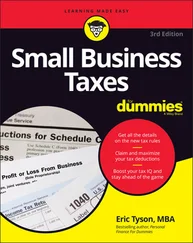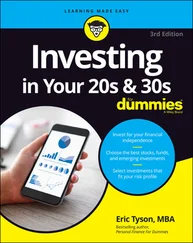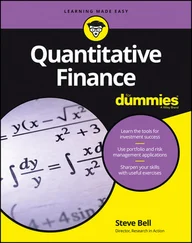 You can get into the habit of saving even when your income is low. Even if you can set aside just $25 or $50 of every paycheck, you’re on the road. As you earn raises or bonuses, you can increase the amount you save. The bottom line: Put a little in savings on a regular basis. Develop the savings habit by making it automatic from your paycheck or an automatic draft from your bank or other transaction account into a savings or investment account.
You can get into the habit of saving even when your income is low. Even if you can set aside just $25 or $50 of every paycheck, you’re on the road. As you earn raises or bonuses, you can increase the amount you save. The bottom line: Put a little in savings on a regular basis. Develop the savings habit by making it automatic from your paycheck or an automatic draft from your bank or other transaction account into a savings or investment account.
 You may consider getting a second job. You can put the money you make from this second job right into savings. Don’t even touch it. If you decide to get a part-time job, make sure that it’s something you enjoy so you don’t end up dreading it. For example, perhaps you enjoyed playing sports growing up and you’d enjoy putting that knowledge to work as a youth sports referee or umpire. If you’re strapped and barely making ends meet, you can also cut expenses. Chapter 5has tips on reducing your spending.
You may consider getting a second job. You can put the money you make from this second job right into savings. Don’t even touch it. If you decide to get a part-time job, make sure that it’s something you enjoy so you don’t end up dreading it. For example, perhaps you enjoyed playing sports growing up and you’d enjoy putting that knowledge to work as a youth sports referee or umpire. If you’re strapped and barely making ends meet, you can also cut expenses. Chapter 5has tips on reducing your spending.
Chapter 3
Using Loans and Paying Down Debts
IN THIS CHAPTER
 Understanding the best uses for debt
Understanding the best uses for debt
 Tackling student-loan debt
Tackling student-loan debt
 Planning strategies for paying off credit-card debt
Planning strategies for paying off credit-card debt
 Seeking relief from extreme debt
Seeking relief from extreme debt
Borrowing money and taking on debt is like using a chainsaw. With proper training and safety precautions, a chainsaw can be a useful tool. In the hands of an insufficiently trained user or when used in the wrong situations, this otherwise helpful tool can do serious damage. The same can be said for borrowing money. Used sensibly, loans can help you accomplish important goals — such as furthering your education, buying real estate, or expanding your business — and boost your net worth over time. Unfortunately, taking on debt can also cause problems: living beyond your means, borrowing against your future earnings, and lowering your longer-term net worth. Too much debt and the wrong kind of high-cost debt can also cause personal stress.
In this chapter, I help you understand the best uses for loans and what debts to avoid. I also explain how to deal with and vanquish student-loan debt and how to conquer the all-too-common problem of consumer debt on credit cards, auto loans, and so on.
Eyeing the Causes of Generational Debt
For a number of years now, it has been argued that young adults are under pressures that lead them to go deeper into debt than prior generations. The reasons cited for this generational debt have typically included the following:
High costs of college: Annual increases in the costs of a college education have far outstripped the increases in general prices of other products and services. The price of some private colleges now is over $80,000 per year!
Stagnating incomes and job prospects: Most industries and companies compete in an increasingly global economy. And, the Internet has undermined and disrupted numerous retailers and other industries, causing incomes in those businesses to stagnate.
High housing costs: The 1990s and most of the 2000s saw rising housing prices, which priced many entry-level buyers out of their local markets.
College campus credit-card promotions: The availability and promotion of credit cards is a big problem. Credit cards are tempting to use during college when your income is minimal or nonexistent. Due to the high number of college students getting into unmanageable credit-card debt, the CARD Act of 2009 restricts card issuers from marketing within 1,000 feet of college campuses. But beware, they set up right across the street and bombard young adults at the age of 21 with all sorts of offers and solicitations. This practice and credit cards offering rewards are getting more young adults hooked on credit cards.
Economic disruptions: Plenty of young people had their jobs and economic lives take a hit during and in the aftermath of the 2008 financial crisis and the 2020 COVID-19 pandemic.
More temptations to spend money: Never before have so many temptations existed for spending money through so many outlets. In addition to the ubiquity of places to shop both nearby and online, people are bombarded with ads everywhere.
Most of these reasons for incurring generational debt are valid. In truth, however, this gloomy list isn’t really fair and balanced. Here are some counter-arguments to the previous list:
Less costly higher-education options are increasing in number. Yes, there are plenty of high-priced four-year colleges, especially private ones. But they don’t have a monopoly on the best higher-education options!
Unemployment hit a 50-year low just before the 2020 COVID-19 pandemic hit. And incomes were rising briskly, especially for those near or below the median income levels. (While the Internet and big tech companies have their downsides, it’s easier now to research and find better values online, which enables smart consumers to get more bang for their bucks.)
Many metro areas have affordable housing, and more workers can work remotely. Increasing numbers of employers are actively trying to grow their employment away from high-cost cities such as New York, San Francisco, and the like.
College students don’t need to have a credit card, which is the cause of students potentially running up debts they will be unable to quickly pay off. Debit cards, with a VISA or MasterCard logo, enable students to pay for items and then have the funds immediately deducted from their checking account, thus preventing them from spending money that they don’t have.
Opportunities happen during periods of economic disruption. Recessions can harm plenty of people, but they also provide opportunities for those whose finances are in order and who have courage and plans!
You don’t have to subject yourself to endless advertising nor succumb to its directives. There are plenty of ad blocking tools you can use when online or watching your favorite programs. You can also choose to consume more media that employs less ads.
 You may encounter some or all of these debt traps during your 20s and 30s. Remember that you’ll always face things in life that you can and can’t control. If you’re aware of these land mines and can discern the difference between what you can’t control and what you can constructively do to contain your spending and debt, then you’re on the right track. If certain venues or situations or people tempt you to overreach, then avoid them. The rest of this chapter can help.
You may encounter some or all of these debt traps during your 20s and 30s. Remember that you’ll always face things in life that you can and can’t control. If you’re aware of these land mines and can discern the difference between what you can’t control and what you can constructively do to contain your spending and debt, then you’re on the right track. If certain venues or situations or people tempt you to overreach, then avoid them. The rest of this chapter can help.
Not all debt is bad. In fact, some debt can help you better your life and improve your financial situation in the long run. Taking out a loan for the right reasons can make good financial sense because you’re making an investment. Loans for your education, for buying or starting a small business, or for purchasing real estate can give you a return on your investment. Furthering your education, for example, can increase your income-earning ability. Borrowing to invest in a good piece of real estate or a small business should pay off over the years as well. Despite the potential, however, there’s no guarantee that you’ll earn a return above and beyond your loan’s interest costs. Money may get spent and borrowed on the wrong type of education or an inferior real-estate property, for example.
Читать дальше

 You can get into the habit of saving even when your income is low. Even if you can set aside just $25 or $50 of every paycheck, you’re on the road. As you earn raises or bonuses, you can increase the amount you save. The bottom line: Put a little in savings on a regular basis. Develop the savings habit by making it automatic from your paycheck or an automatic draft from your bank or other transaction account into a savings or investment account.
You can get into the habit of saving even when your income is low. Even if you can set aside just $25 or $50 of every paycheck, you’re on the road. As you earn raises or bonuses, you can increase the amount you save. The bottom line: Put a little in savings on a regular basis. Develop the savings habit by making it automatic from your paycheck or an automatic draft from your bank or other transaction account into a savings or investment account. Understanding the best uses for debt
Understanding the best uses for debt You may encounter some or all of these debt traps during your 20s and 30s. Remember that you’ll always face things in life that you can and can’t control. If you’re aware of these land mines and can discern the difference between what you can’t control and what you can constructively do to contain your spending and debt, then you’re on the right track. If certain venues or situations or people tempt you to overreach, then avoid them. The rest of this chapter can help.
You may encounter some or all of these debt traps during your 20s and 30s. Remember that you’ll always face things in life that you can and can’t control. If you’re aware of these land mines and can discern the difference between what you can’t control and what you can constructively do to contain your spending and debt, then you’re on the right track. If certain venues or situations or people tempt you to overreach, then avoid them. The rest of this chapter can help.










